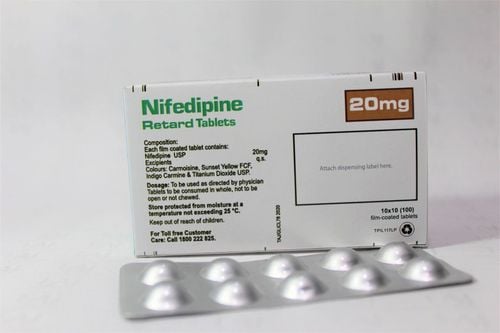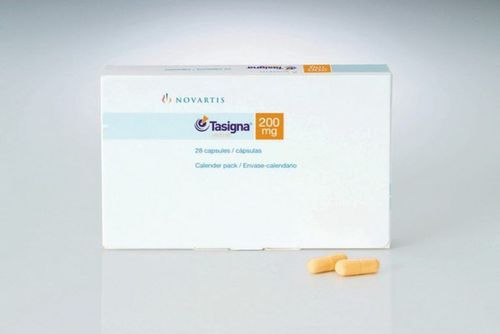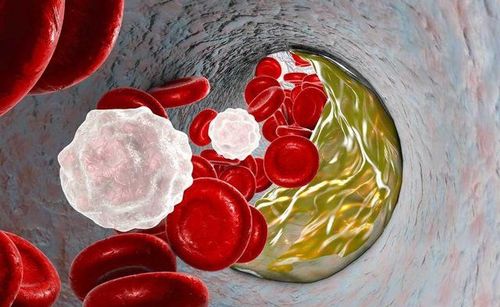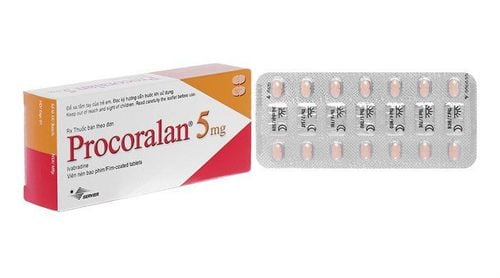This is an automatically translated article.
The article is professionally consulted by Master, Doctor Do Xuan Chien and Master, Doctor Hoang Thi Hoa - Department of Medical Examination and Internal Medicine - Vinmec Ha Long International General Hospital.Coronary artery disease is caused by the instability and rupture of atherosclerotic plaques, leading to the formation of a thrombus that narrows or completely occludes the coronary arteries. The core treatment plays a very important role in reducing cardiovascular complications and improving the survival prognosis for patients.
1. What is coronary heart disease?
Coronary artery disease, also known as coronary stenosis, is a condition in which atherosclerotic plaques build up in the coronary arteries, reducing blood flow to the heart and causing angina attacks, or more dangerously, coronary artery disease. heart attack, stroke.Among cardiovascular diseases, coronary artery disease is one of the dangerous diseases, capable of causing rapid death for patients.
When suffering from coronary artery disease, the patient often shows the following symptoms:
Chest and heart pain: The most obvious manifestation of coronary artery disease, the patient will feel tightness in the chest and feel like the chest. being suppressed and subjected to a great deal of pressure, in many cases will feel a stinging and burning sensation in the chest which is extremely uncomfortable; The pain in coronary artery disease usually occurs in the chest, neck, jaw, under the sternum, shoulders, and arms. Depending on the condition of the disease, the level of pain will vary, the pain gradually subsides when the patient rests or takes vasodilators.
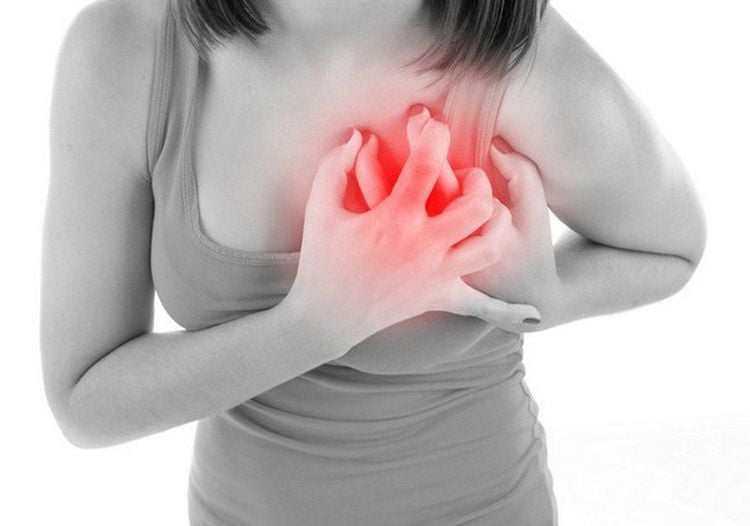
2. Antiplatelet drugs in the treatment of coronary heart disease
For the rupture of atherosclerotic plaques, platelet aggregation is an important factor in the thrombotic response. Therefore, platelet inhibition is generally recommended in patients with stable coronary artery disease in the absence of contraindications.Antiplatelet drugs act by different mechanisms. Some anticoagulant and antiplatelet drugs that can be used to treat coronary heart disease include:
2.1 Aspirin Aspirin was invented by German Felix Hoffman in 1899, with the main effect of treatment. reduce fever and relieve pain. By 1955, scientists had conducted research and discovered that in addition to its ability to help relieve pain and reduce fever effectively, aspirin also has the ability to prolong bleeding time and can be used to prevent blood clots, up to In 1967, new clinical studies of Aspirin were really conducted.
Aspirin acetylates the cyclo-oxygenase enzyme of the platelet membrane and endothelial cells, making these enzymes inactive, helping to hinder the synthesis of prostaglandin endoperoxid, and through it to inhibit the synthesis of prostaglandins. Formation of both thromboxane A2 and prostacyclin. Because platelets do not have nuclei, the effect on platelets is irreversible, whereas when acting on endothelial cells with nuclei, it is reversible, still able to produce cyclo-oxygenase enzyme. Therefore, aspirin has only a partial effect on platelet aggregation due to the action of ADP, thrombin, and collagen.
Aspirin is widely indicated in the treatment of thromboembolic disease - thromboembolism such as: myocardial infarction, unstable angina, ischemic stroke, coronary heart disease ... In addition, aspirin is also indicated. It is intended to be widely used in the primary prevention of thromboembolic events in high-risk cardiovascular patients such as heart failure, arrhythmia....
2.2 Clopidogrel Clopidogrel is a thienopyridine derivative, with a chemical structure similar to ticlopidine, which is the most widely used anticoagulant and antiplatelet drug with the brand name plavix. Some scientific studies have demonstrated that plavix has the effect of reducing up to 50% of complications of myocardial infarction and sudden death in patients with acute coronary disease.
Clopidogrel has a selective and irreversible inhibitory effect on the binding of ADP molecule (adenozin diphosphate) to its receptors on the surface of platelets, rendering GP IIb/IIIa receptors inactivated. As a result, the platelets do not stick together, thereby preventing the formation of blood clots. This is very important for patients who need surgery (5 days before surgery to stop taking the drug to prevent bleeding).
Dangerous complications of anticoagulants and antiplatelet agents clopidogrel, like non-steroidal anti-inflammatory drugs, can cause gastrointestinal bleeding, so it is necessary to absolutely follow the doctor's instructions in use. medicine. Clopidogrel is indicated for the treatment of thromboembolic events such as acute myocardial infarction, acute coronary syndrome without ST-segment elevation. Contraindicated in cases of increased hypersensitivity to the drug or its preparations, severe liver failure and ongoing bleeding that cannot be stopped (gastrointestinal bleeding, intracranial bleeding), the drug should not be used for women. pregnant or breastfeeding.
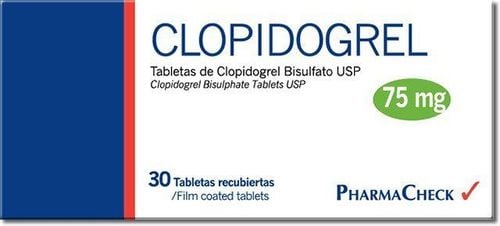
Ticlopidine: Also a thienopyridine derivative, has anticoagulant and antiplatelet effects. However, when using Ticlopidine is likely to cause some side effects such as:
Digestive disorders; Drug allergy; Leukopenia, thrombocytopenia, rarely bone marrow hypoplasia; There may be bleeding and increase in cholesterol, triglyceride levels... Patients while using Ticlopidine must check their blood cells and stop using the drug when white blood cells <1.5g/l, platelets <100g /l, 10 days before surgery.
3. How to prevent coronary heart disease?
If coronary artery disease is not detected and treated promptly, it can cause many life-threatening complications. Therefore, to prevent this disease effectively, it is necessary to:Minimize the use of alcoholic beverages and stimulants; Limit the use of foods that are not good for the heart such as foods high in sugar, fat, and salt; Build a scientific, healthy diet, low in cholesterol, saturated fat and trans fat; Form a habit of exercising every day to improve health; Periodic health check to detect problems early and take timely intervention measures.
Please dial HOTLINE for more information or register for an appointment HERE. Download MyVinmec app to make appointments faster and to manage your bookings easily.
Reference source: Vietnam Journal of Cardiology




